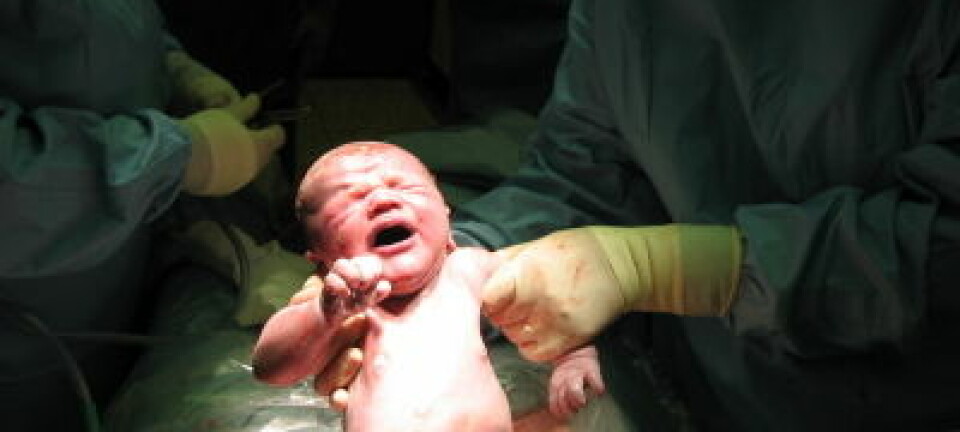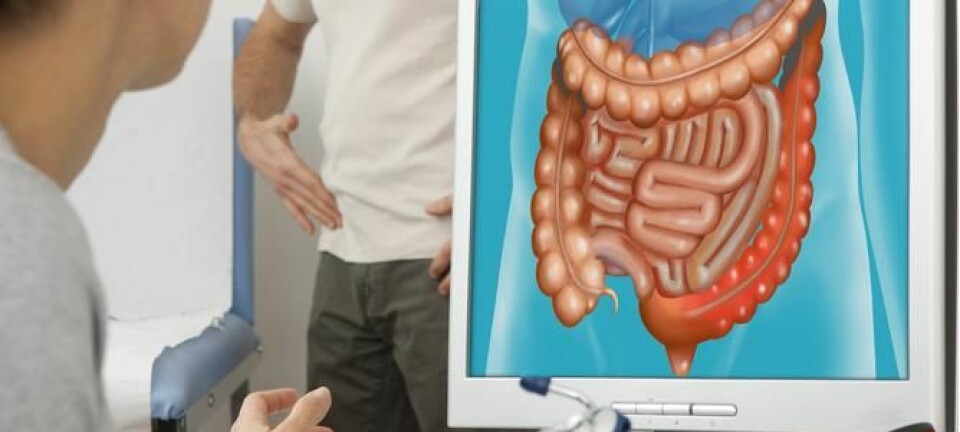
New hypothesis: gut bacteria can make you fat
Scientists have a new hypothesis to explain how obese people store more fat, which might lead to better treatments for obesity related conditions.
Scientists have known for a long time that gut bacteria can influence whether we are slim or overweight. They also know that overweight people often suffer from tissue inflammation, which can lead to serious complications such as cardiovascular disease, type 2 diabetes, and hypertension.
Now, three scientists have put forward a new hypothesis that could explain how obese people are more susceptible to piling on the pounds than others, and why obesity leads to inflammation.
"The new thing here is that we have a plausible explanation of how the actual process of storing fat as fatty tissue is sped up in obese people.," says lead-author Lars-Georg Hersoug, a postdoctoral researcher from the Department of Public Health at the University of Copenhagen.
"In the long term, understanding this process and how it relates to tissue inflammation will provide a better opportunity to treat obesity and obesity-related diseases," he says.
The results are published in the scientific journal Obesity Reviews.
Bacteria enhance fat storage
Hersoug and his co-authors suggest that so-called lipopolysaccharides help overweight people store more fat. Lipopolysaccharides consist of carbohydrates and fats, which form in the gut by gram-negative bacteria.
Lipopolysaccharides are found in the outer wall of the bacteria cell membrane, where they help the bacteria to stave off attacks from other chemicals in the gut. They are released into the gut when the bacteria die.
Several independent studies have previously shown that obese people release more lipopolysaccharides than people of average weight.
"Lipopolysaccharides in the intestines are packed with grease from our food, held in small particles that transport fat around the body," says Hersoug.
"Our hypothesis is that lipopolysaccharides enhance the absorption of fat in fatty tissue, as they bind particularly well to some of the receptors in fatty tissue," he says.
Hersoug’s hypothesis is based on a number of studies conducted on humans and animals as well as laboratory experiments. But there is no direct evidence to confirm the hypothesis just yet,--or to suggest by how much lipopolysaccharides can increase fat absorption rates.
Hersoug and colleagues now plan to investigate it in more detail, both in vitro and in animal studies.
Bacteria must be part of obesity treatments
Professor Oluf Borbye Pedersen, from the Novo Nordisk Foundation Metabolic Center at the University of Copenhagen, Denmark, agrees that the Hersoug’s hypothesis might be an important piece of the puzzle when it comes to understanding obesity and its causes.
Pedersen was not involved in the new research, but he too studies gut microbes and how they may influence obesity, type-2 diabetes, and cardiovascular disease.
"The hypothesis they’ve presented is an important benchmark for future studies of how gut microbes affect the development of obesity and a number of diseases that occur with obesity, including type 2 diabetes and cardiovascular disease," says Pedersen.
"The new thing here is that the lipopolysaccharides may be involved in fat accumulation in tissues. If it can be confirmed by new experiments then it could be another way to prevent obesity by reducing the burden of gram-negative bacteria in the gut of obese people and thus reduce the amount of lipopolysaccharides in blood and tissues,” he says, and adds, “for example, a low fat diet will reduce the amount of gram-negative bacteria in the gut."
More and more studies now suggest that gut bacteria are important for the development of obesity, says Pedersen, who advocates that the composition of intestinal bacterial should be taken into account when treating obesity.
There are many other factors that influence the development of obesity, he says. For example, certain composition of gut bacteria may absorb more energy from food particles or reduce the body’s ability to burn fat and regulate appetite.
"These are all factors that increase the risk of becoming overweight and obese," says Pedersen.
------------------
Read the Danish version of this story on Videnskab.dk
Translated by: Catherine Jex
Scientific links
- Gut microbiota-derived lipopolysaccharide uptake and trafficking to adipose tissue: implications for inflammation and obesity. Obesity reviews 2015. DOI: DOI: 10.1111/obr.12370
- Binding and internalization of lipopolysaccharide by Cla-1, a human orthologue of rodent scavenger receptor B1. J Biol Chem 2003. DOI: 10.1074/jbc.M211032200.
- Metabolic endotoxemia initiates obesity and insulin resistance. Diabetes 2007. DOI: 10.2337/db06-1491.
- Intravenous lipid emulsions: removal mechanisms as compared to chylomicrons. J Lipid Res 1995.
- Lipopolysaccharide (LPS)-binding protein mediates LPS detoxification by chylomicrons. J Immunol 2003. DOI: 10.4049/jimmunol.170.3.1399








